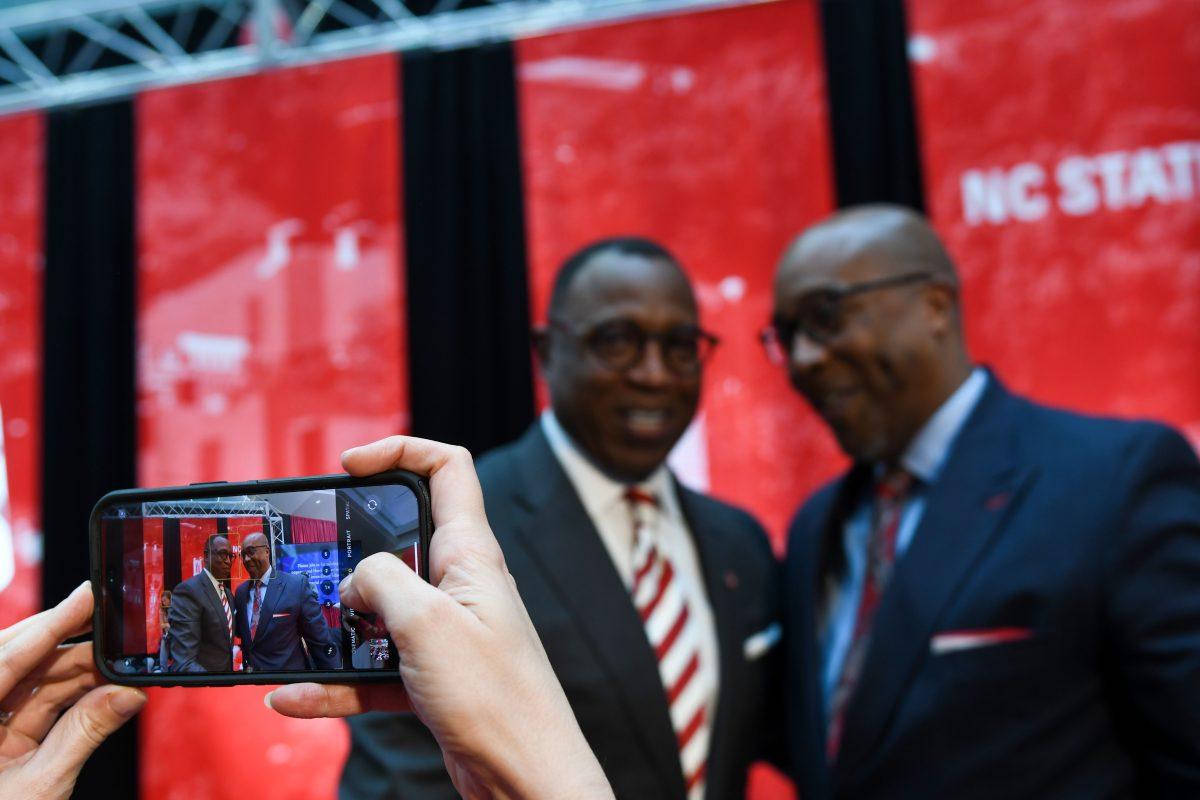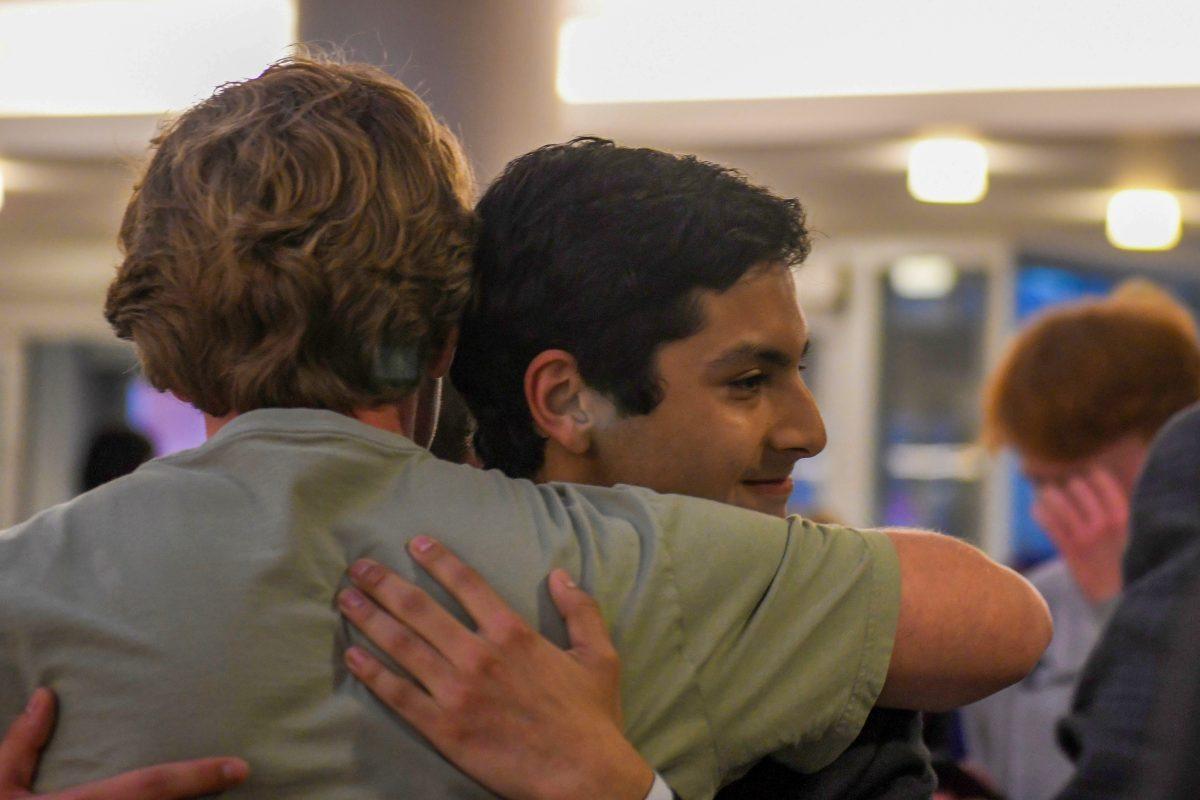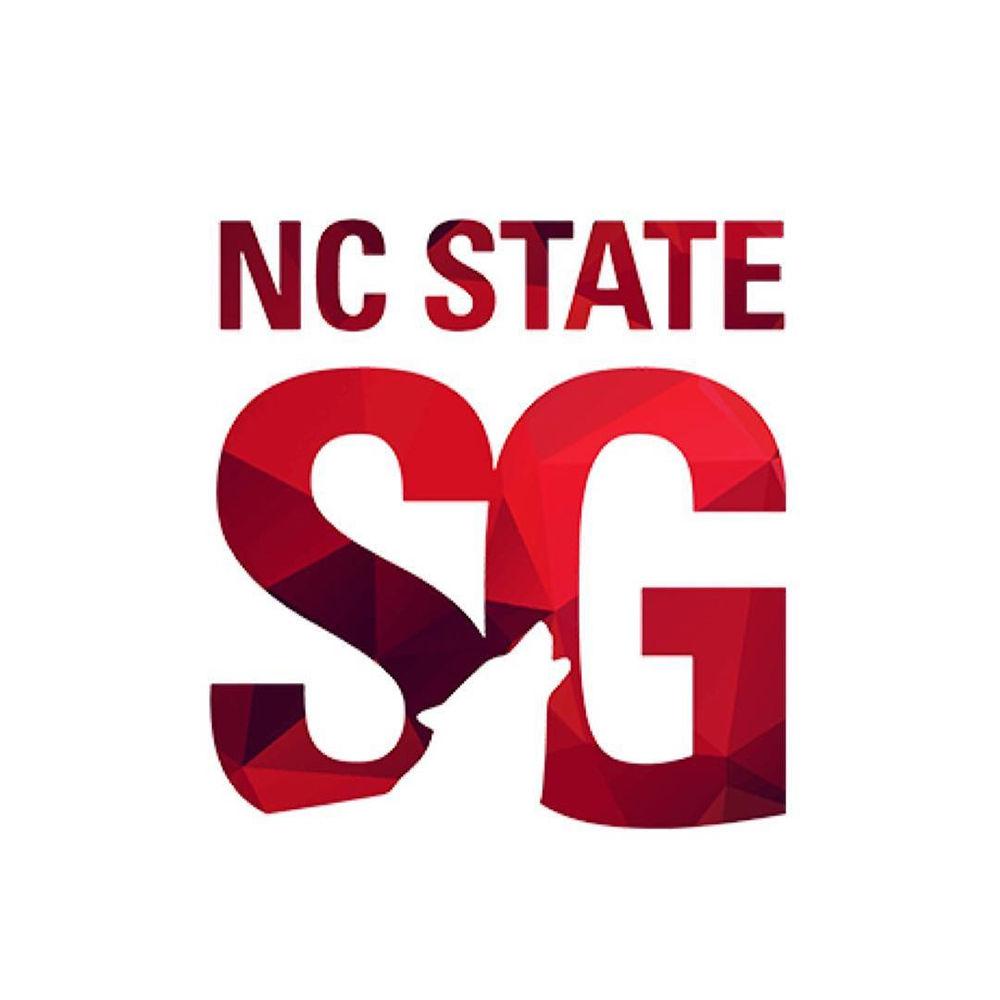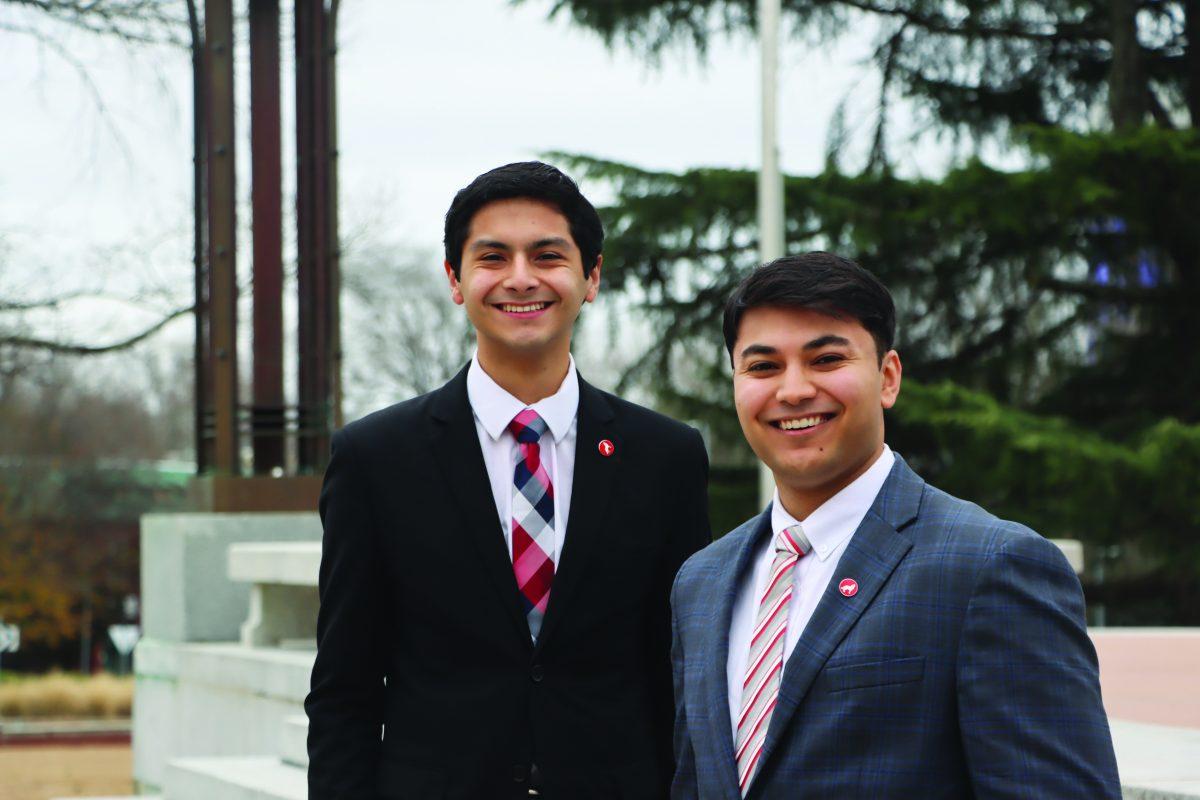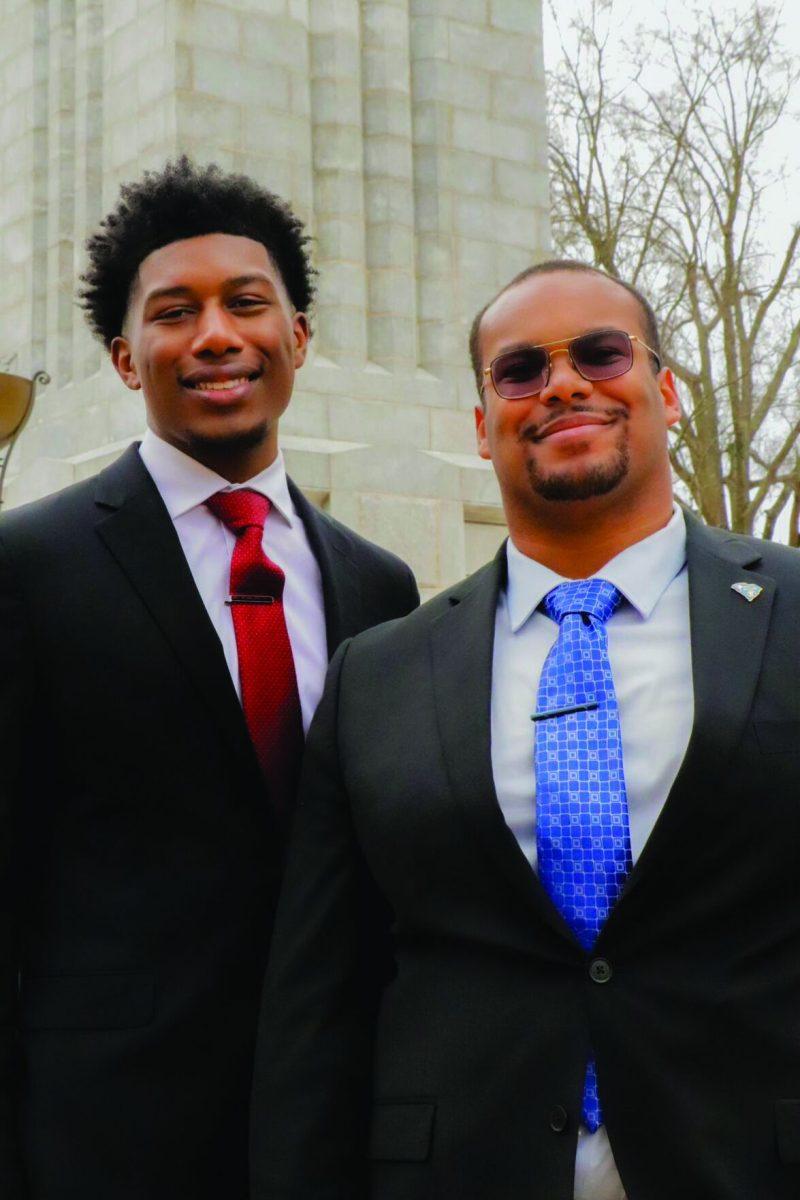NC State’s Graduate Student Association issued a statement on Sept. 23 calling for accountability from Student Government regarding an undisclosed meeting held by members of Student Senate leadership in April.
The statement expressed the GSA’s “deep concern” regarding the undisclosed meeting, condemning it and the lack of accountability of leaders in Student Government who “engage in manipulative practices.”
The ratified statement, which passed with 44 in favor, four against and three abstentions by the GSA All-Council, also described how the lack of action sets a “detrimental precedent for the conduct of student governance.”
“We, the Graduate Student Association of NC State, view these actions as potentially indicative of a troubling lack of leadership and unethical conduct within the Student Government,” the statement read. “Such behavior undermines the principles of inclusivity, fairness and transparency that are essential in any leadership role and the value of democracy upon which our Student Government was founded.”
The statement concluded with a request for Student Body President Allison Markert to provide a “justification for how the event occurred under her leadership.”
The undisclosed meeting was held on April 16, as independently confirmed by Technician, one day before Student Senate voted on a motion to fast-track Resolution 29, which called for a ceasefire in Gaza and a divestment of University funds from Israel. The meeting was held by Student Senate Pro Tempore Taquan Dewberry, a now-second-year studying computer science and philosophy. Only 22 student senators were invited, with almost two-thirds of the total number of student senators not present.
Summia Rahman, president of the Graduate Student Association, said she met with Markert over the summer to discuss the event and any potential punitive action Markert and Student Government would take in regards to the issue. Summia Rahman said conversations between leadership at the GSA and Student Government have continued since then.
“We reached out to her in person and asked her, but she said she’s working on it,” Summia Rahman said. “But several months have passed — we haven’t heard from her or any progress on that matter.”
However, in a written statement to Technician, Markert wrote Student Government is not planning to issue any punitive actions against any involved in the incident.
“Student Government has not issued, nor are we planning to issue, retroactive judicial action against members involved in the April process,” Markert wrote. “Our focus has been on taking individual and collective responsibility for the oversight and implementing preventative measures to ensure transparency and accountability moving forward.”
Christina Marlow, GSA vice president of internal affairs, said the GSA is still awaiting a definitive response from Markert and the rest of Student Government as to whether or not there will be judicial actions or punishments toward those involved.
Marlow also cited specific Student Government statutes that she thinks could be applied to those involved, including the Student Government code of ethics, punitive processes and open meetings requirements.
“What does the judicial branch of student government have?” Marlow said. “Are they looking into it? Have they looked into it? We haven’t heard anything from that since that’s who would be in charge of any investigations on that count. So we were just curious about what those steps were, because we haven’t, seemingly — especially with our student government relations — haven’t seen anything going forward that aligns with what their statutes lay out.”
While Marlow cited the statutes, she said GSA is not calling for specific consequences, only for clarity on what Student Government’s course of action is regarding the matter.
“We’re not necessarily saying it has to be the most extreme sanctions or anything like that,” Marlow said. “We would just like to know what sanctions, if any, are occurring, or at least knowing that the process for punitive elements, as outlined, is occurring or not. … We just want transparency on what the plan is moving forward in terms of any repercussions within the formal system.”
Saifur Rahman, current GSA vice president of student governance relations and a senator at the time of the incident, said senators who were excluded — including him — received an “informal” email apology from Student Government. Saifur Rahman and Summia Rahman said not all senators received the apology.
In her written statement, Markert wrote public apologies were shared via social media and in the Student Senate Chambers on April 17, one day after the undisclosed meeting. However, in a statement on an Instagram post signed by the Student Body Officers regarding the April 17 Student Senate meeting, there was no explicit mention of the April 16 undisclosed meeting.
Summia Rahman asked if Student Government was going to officially apologize for the incident. Like Marlow, she mentioned the search for an answer as to whether or not punitive judicial action would be issued.
“We are making a point here for accountability,” Summia Rahman said. “What are they going to do for the mistake? … If you hit someone’s car, damage someone’s car, of course you are sorry because you damaged the car. Still, you need to pay the damage, right? That’s how everything works. So, yeah, of course you are sorry because you made a mistake. So what’s next? Where’s the accountability? That’s the key.”
Both Summia Rahman and Marlow said the purpose of GSA’s statement was one of documentation, not a personal attack or slight on Student Government or its leaders.
“This is not directed at the standing or personhood of the individuals,” Marlow said. “This is not meant to be an attack in any way. And this is also not meant to necessarily say that someone should resign or not resign. We are not saying that. We are just simply asking for further clarity, transparency and accountability, but we want to make it really clear that we are not holding a grudge.”
Markert said there will be no retroactive judicial action taken against those involved, personally reassuring Student Government’s “commitment to equity and equality” throughout judicial processes.
“Student Government leadership [has] worked diligently to support impacted students, take responsibility for this oversight and implement preventative measures to avoid such occurrences in the future,” Markert wrote.
Markert wrote efforts to prevent these events in the future included but were not limited to training courses for new senators, creation of an ethics committee for, “review of our processes as a whole,” codification of the Senate Decorum Act, which provides for “agreed upon social and moral standards within the Student Senate” and live streaming Student Senate meetings to the public.
Markert wrote she was thankful for the GSA’s desire to hold Student Government to a high standard.
“I am thankful for the Graduate Student Association in their commitment for holding us to a high standard,” Markert wrote. “Student Government takes advantage of all opportunities to improve our organization and proceedings.”








